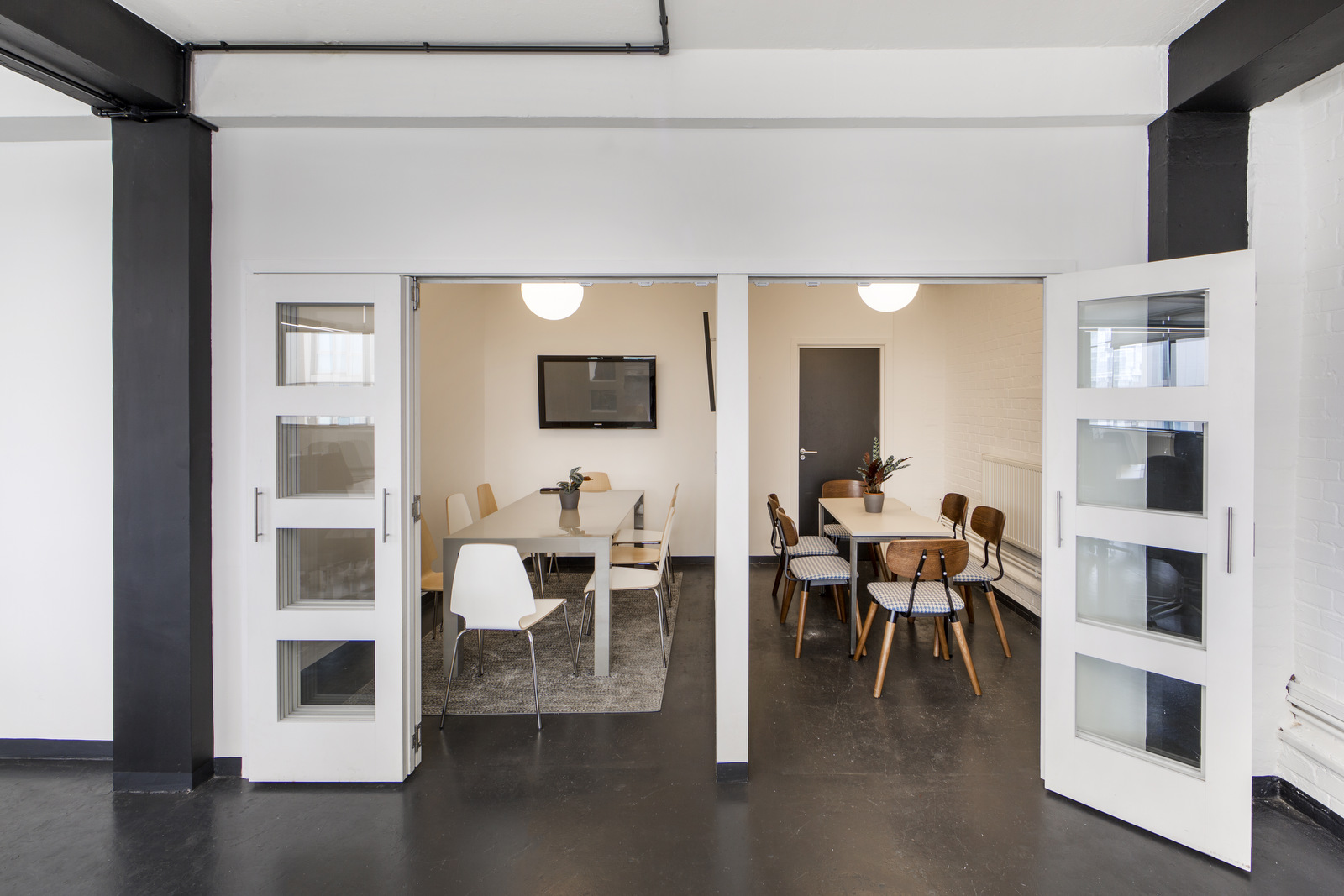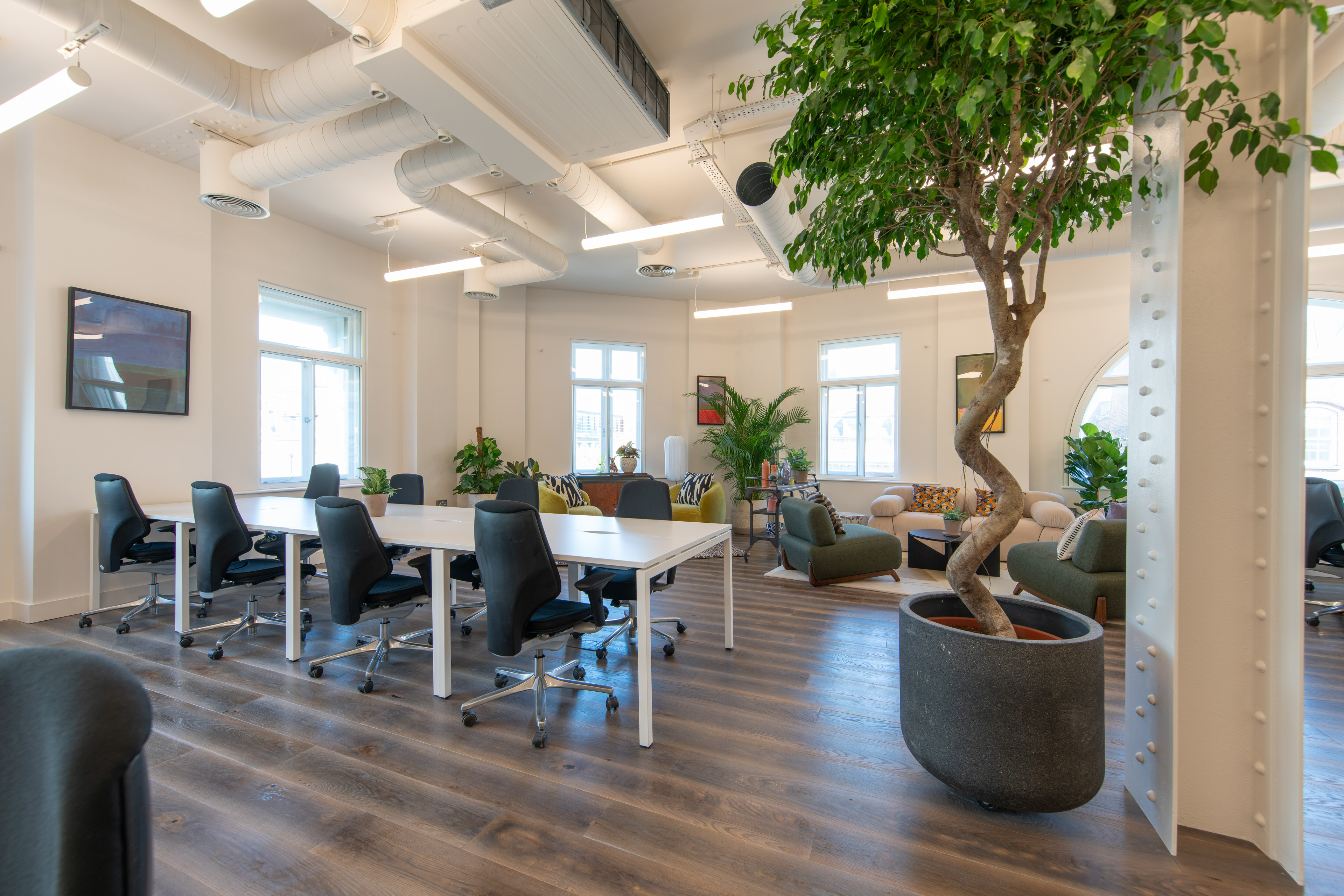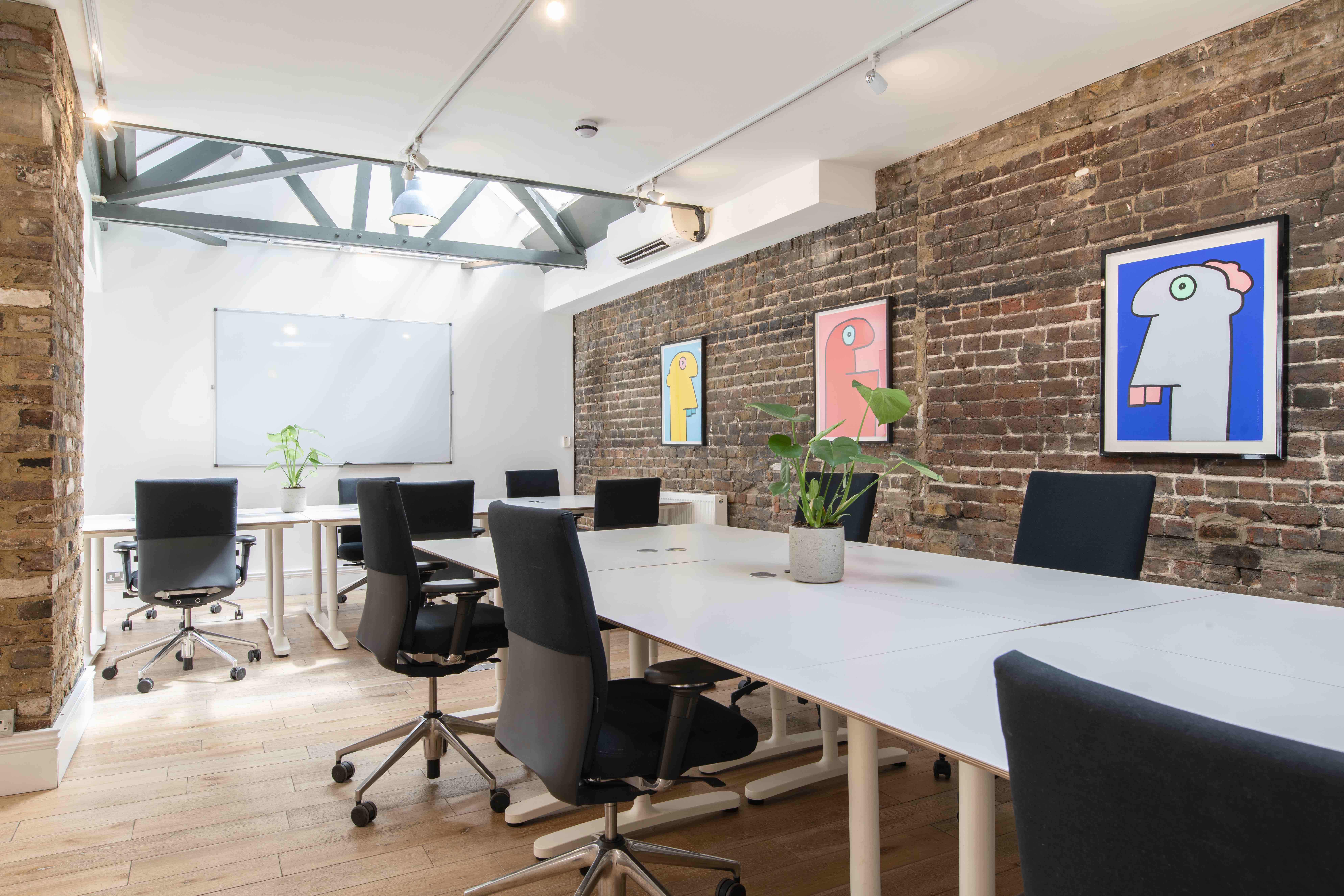Do startups really need an office? Well, yes and no. If you’re a small startup in very early stages, then a private office in central London is likely to be an expense that you simply cannot justify at the moment. Especially considering that a lot of work can be done remotely. If, however, you’re looking to grow your startup, then the right office can be instrumental in taking your business to the next level. We’ve created this comprehensive guide to help you decide whether renting an office in London is right for your startup.
Working Remotely Versus Renting an Office
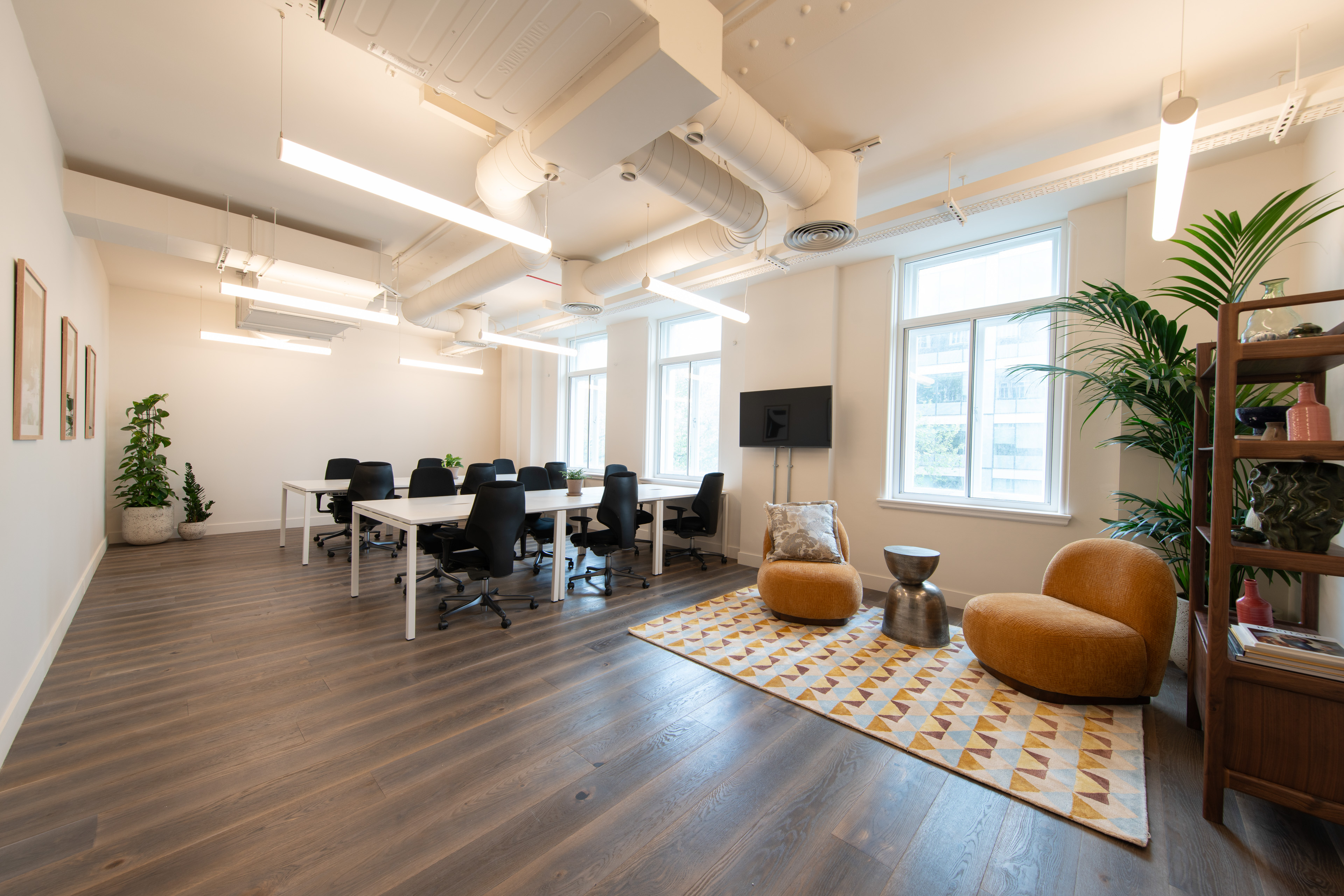
If recent times have taught us one thing, it’s that working remotely is a feasible option for businesses of all sizes. The rapid adoption of video-conferencing and remote working tools like Zoom, Skype, Google Hangout, Microsoft Teams and Slack have facilitated this boom. There’s also a growing hunger amongst workforces for a more flexible style of working. For example, a recent survey by HubbleHQ found that 86% of people surveyed want to work outside their office at least once a week.
Despite this, only 15% of people want to work remotely full time. With 71% still wanting their company to have an office of some sort according to the survey. This means that although there’s a growing demand for more flexible styles of working, the need for a physical office space is still high. Whilst technology has enabled us to work remotely, it has not replaced face-to-face meetings and human interaction between teams.
For startups, this means that there’s less pressure to get an office straightaway as teams are more comfortable with working remotely. But, renting an office space is probably an essential part of your startup journey. Whilst putting roots down might feel daunting, an office is a worthwhile investment. Not only is it conducive to a happy and flexible working life, but it will also bring more structure to your organisation whilst making your teams more accountable. It’s the key to taking your business to the next level, you just need to decide whether now is the right time to take that step.
Team-Building

Building a strong team is crucial to the success of your startup. After all, you’re only as good as the company that you keep. The power of technology means that some of this team building can take place online, with face-to-face interactions happening on an ad-hoc basis. You will also have access to more diverse teams that would otherwise not be able to work for your company, due to accessibility or geographical reasons.
Technology does, however, have its limitations. From technical problems caused by varying degrees of network connectivity, which can often lead to meetings starting late, to miscommunications and a lack of human interaction. Having your own office space will allow you to build a stronger team culture through collaboration and face-to-face meetings as the norm. It will also allow for greater integration between different teams. A dynamic work environment where employees are able to support each other will improve the overall quality of their work.
Socialising has the holistic benefit of making your teams happier. Us humans are, by nature, social animals that rely on interactions in order to survive and thrive. This has been proven by a multitude of studies that have found social connections to be as important as food and shelter for human survival. Whilst technology has given us the tools to collaborate remotely, our biology hasn’t changed.
In fact, according to HubbleHQ’s study, 75% of employees cited a lack of social interaction as a downside of working remotely. For many people, their co-workers eventually become close friends that they even see outside the office. Improving the social lives of your employees will do wonders for employee wellbeing, mental health and overall team morale. This will have a secondary benefit of improving their productivity whilst at work.
Attracting Talent
An office will also give you more room to expand your team. Flexible office spaces mean that you’ll have the freedom to add more desks as your team grows. Whilst having a physical office is a great recruitment tool as it says a lot about your startup’s financial health, and signifies that you’re going to be around for a while. Both of these factors promise job security for prospective employees. Attracting the best and brightest employees will generate revenue that’s worth way more than the cost of renting an office.
Building a Strong Brand Identity
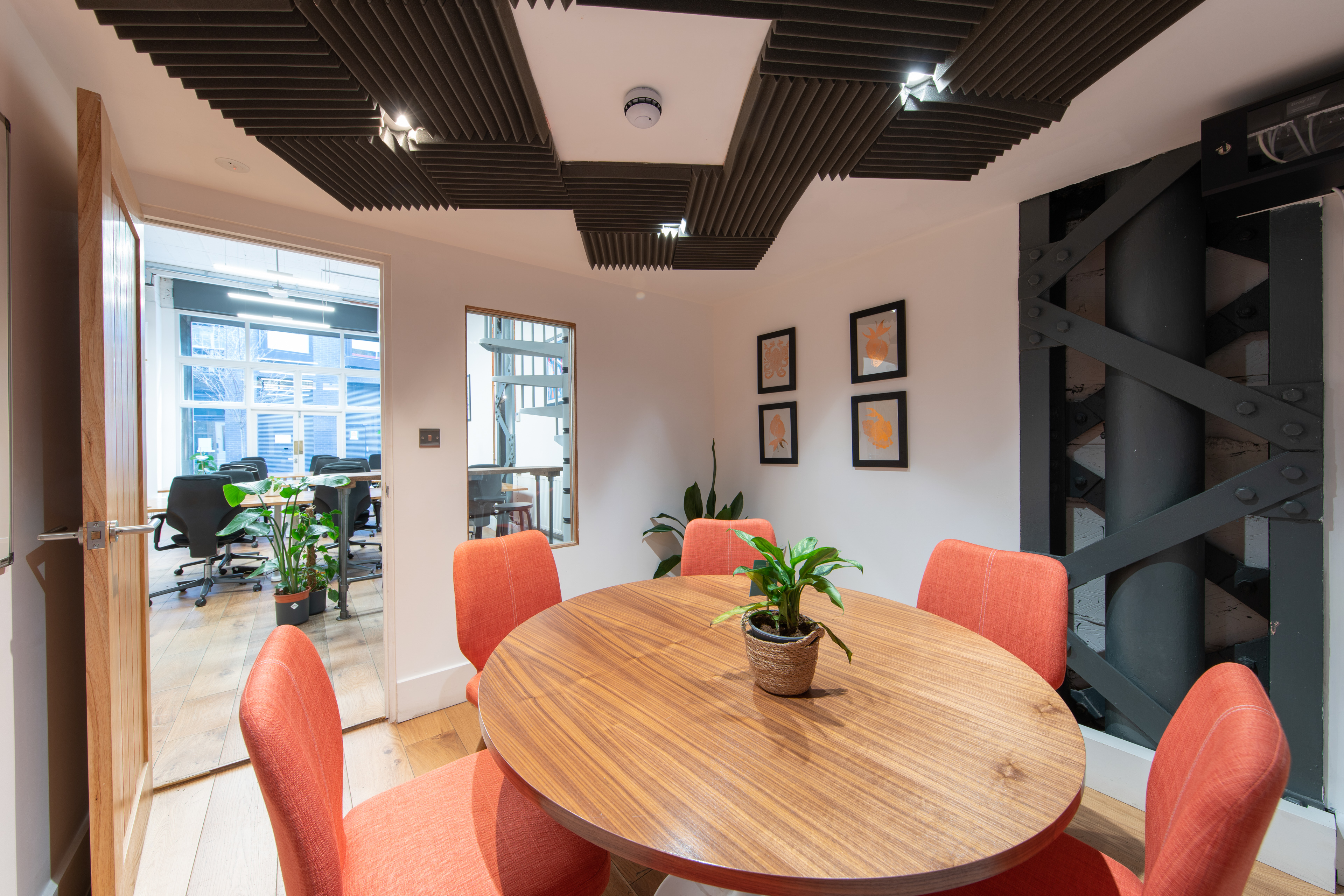
An office space is a great way for companies to communicate the essence of their brand. This is especially important for startups in the process of establishing their brand identity and communicating it to the world.
The best businesses and, indeed, startups conjure up imagery of their office spaces. From Apple’s spaceship-shaped HQ to Google’s replacement of stairs with slides, and the many startups that are housed in the new breed of flexible workspaces with cool decor, pool tables and bean bags alike. Their offices say a lot about them as a company and so does their central location. This has both internal and external benefits.
It helps to cultivate a team culture internally. Employees will also all be singing from the same hymn book and better equipped to communicate the brand to clients. Externally, having a private office does help customers and investors take you more seriously. It can give authority and legitimacy to your startup, as it shows that you mean business and are playing a bigger game.
As well as finding an office that’s already in line with your brand, some flexible office spaces will allow you to put your own stamp on them. This will give you the opportunity to create a team environment that you’re truly proud of. You’ll be able to put your logo upfront and centre, customise the decor to your taste, and add your own little quirks that your team will love. Having a space that you're proud to come into every day will also help you stay focused, creative and energised.
Workplace Privacy
In order to operate, every business needs a level of privacy. Whether you’re taking private phone calls, discussing personal matters with employees, handling sensitive information or dealing with client records. You need to decide just how important privacy is for your startup. If it isn’t a serious concern, then you might be able to operate just fine in a shared workspace. If it is important then a private office is a sensible business move.
Working from a private office space, you’ll be free to have private meetings without prying eyes or ears. Your clients will probably feel more comfortable discussing sensitive information in a private place. And you will also be able to keep private records, be it hard copies or electronic information, secure from loss, theft or tampering.
Not to mention that you’ll be able to nurture your business without distractions. This added privacy will give you the ability to focus on serious work. Something which can be hard to come by in shared workspaces. This is great for meetings, ideation and new product development. You’ll be able to improve the efficiency of your employees, the overall team dynamic and the experience of clients.



